Benefits of seeing a Herbal Practitioner

Enjoy a one-to-one herbal consultation
Seeing a herbal practitioner allows time to explore all your health issues in the context of your complete medical history. When your practitioner puts together your herbal prescription (often a blend of herbs taken as a tea or in pill or tincture form), this is designed to suit your individual needs instead of being used to treat a specific disease regardless of your individual circumstances. In a one-to-one herbal consultation the focus is on treating the person rather than the condition. Your herbalist takes account of your constitutional nature and social context as well as your individual response to ongoing herbal treatment. This enables the practitioner to adjust and individualise the treatment strategy throughout a course of treatment for optimum effect.
Your herbalist may refer you for tests or, if need be to your GP, but generally speaking herbal treatment is autonomous and independent. When you visit your practitioner, you should take all your medical details to the consultation as well as a complete list of any medicines you may already be taking. Follow-up appointments will allow you to review progress and any new issues that may need addressing with your herbalist. In this way, you and your practitioner work together in partnership to enable you to achieve optimum health and stay well.
Seeing a herbal practitioner allows time to explore all your health issues in the context of your complete medical history. When your practitioner puts together your herbal prescription (often a blend of herbs taken as a tea or in pill or tincture form), this is designed to suit your individual needs instead of being used to treat a specific disease regardless of your individual circumstances. In a one-to-one herbal consultation the focus is on treating the person rather than the condition. Your herbalist takes account of your constitutional nature and social context as well as your individual response to ongoing herbal treatment. This enables the practitioner to adjust and individualise the treatment strategy throughout a course of treatment for optimum effect.
Your herbalist may refer you for tests or, if need be to your GP, but generally speaking herbal treatment is autonomous and independent. When you visit your practitioner, you should take all your medical details to the consultation as well as a complete list of any medicines you may already be taking. Follow-up appointments will allow you to review progress and any new issues that may need addressing with your herbalist. In this way, you and your practitioner work together in partnership to enable you to achieve optimum health and stay well.

Engage your innate healing potential
A positive functioning partnership between you and your herbalist engages your innate healing capacity and provides motivation to make healthy lifestyle changes. Such a positive therapeutic relationship should not be dismissed as a ‘placebo effect’ or a ‘good bedside manner’. The personal consultation provides real benefits such as:
A positive functioning partnership between you and your herbalist engages your innate healing capacity and provides motivation to make healthy lifestyle changes. Such a positive therapeutic relationship should not be dismissed as a ‘placebo effect’ or a ‘good bedside manner’. The personal consultation provides real benefits such as:
- Empathetic communication with more time available than in biomedical encounters.
- Involvement in one’s own care through participation in decision-making about treatment options and self-help strategies.
- Explanatory frameworks within which to explore health and illness, which are frequently in tune with patients’ own ideas about health and illness. Patients report a high satisfaction rating from this kind of encounter.[1]

Explore your narrative
This standard herbal approach to consultation is now becoming of interest to medicine in general where it is termed ‘narrative medicine’. Such a consultation encourages patients to explore their own narratives to promote healing and aims to address any psychological problems that occur in conjunction with physical symptoms. In the consultation, the patient is encouraged to explore his/her individual story, rather than experience assessment and treatment purely based on symptoms. This seeks to validate the experience of the patient as well as encouraging creativity and self-reflection in the practitioner too. In short, the value of allowing time and empathy for narrative provides meaning, context, and perspective for the patient’s predicament. It usually explains how, why, and in what way he or she is unwell. Such an approach can lead to new ideas about treating stubborn, long lasting complaints.
This standard herbal approach to consultation is now becoming of interest to medicine in general where it is termed ‘narrative medicine’. Such a consultation encourages patients to explore their own narratives to promote healing and aims to address any psychological problems that occur in conjunction with physical symptoms. In the consultation, the patient is encouraged to explore his/her individual story, rather than experience assessment and treatment purely based on symptoms. This seeks to validate the experience of the patient as well as encouraging creativity and self-reflection in the practitioner too. In short, the value of allowing time and empathy for narrative provides meaning, context, and perspective for the patient’s predicament. It usually explains how, why, and in what way he or she is unwell. Such an approach can lead to new ideas about treating stubborn, long lasting complaints.
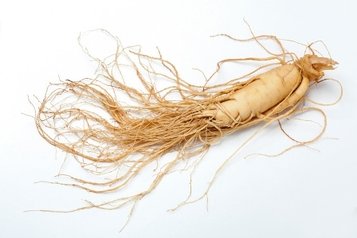
Herbal medicines prescribed by a skilled herbalist
Herbal medicines are ideal tools for this work. For example, some herbal medicines such as ginseng and astragalus have the capacity to counter chronic fatigue[2],[3] while other herbs can help eradicate pathogens and improve the body’s eliminative and detoxification systems such a milk thistle[4] and dandelion[5] for improving liver function. A skilled herbal practitioner is able to strike a balance between strengthening and eliminating strategies, supporting ailing systems such as digestion or the nervous system as appropriate. The knowledge and skill of the herbalist is in blending the right mixture of herbs at the right dosage to suit the individual patient being treated. This means that there is a substantial benefit in seeking the services of a professional herbalist who has access to use a wide range of herbs, rather than self medicating on the basis of rather imprecise advice perhaps picked up by googling one’s medical problem on the internet.
In short, seeing a herbal practitioner can be a life-changing process. Why not try it and see for yourself?
Herbal medicines are ideal tools for this work. For example, some herbal medicines such as ginseng and astragalus have the capacity to counter chronic fatigue[2],[3] while other herbs can help eradicate pathogens and improve the body’s eliminative and detoxification systems such a milk thistle[4] and dandelion[5] for improving liver function. A skilled herbal practitioner is able to strike a balance between strengthening and eliminating strategies, supporting ailing systems such as digestion or the nervous system as appropriate. The knowledge and skill of the herbalist is in blending the right mixture of herbs at the right dosage to suit the individual patient being treated. This means that there is a substantial benefit in seeking the services of a professional herbalist who has access to use a wide range of herbs, rather than self medicating on the basis of rather imprecise advice perhaps picked up by googling one’s medical problem on the internet.
In short, seeing a herbal practitioner can be a life-changing process. Why not try it and see for yourself?
History & Research
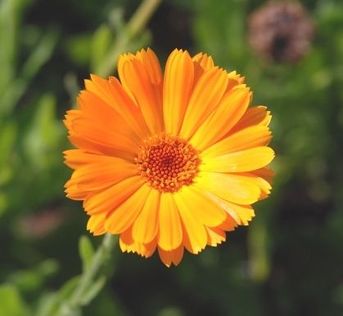
Ancient knowledge - modern application
Herbal medicine has been practised by all peoples across the world since prehistoric times. This extraordinary wealth of experience is invaluable, enabling us to draw on this vast knowledge base stretching back millennia. Today the contribution of plants to disease treatment and prevention remains impressive. At the start of 21st century, 11% of the 252 drugs considered as basic and essential by the World Health Organisation were exclusively of flowering plant origin.[6] Researchers also noted that, 80% of 122 plant derived drugs had a traditional medicine use identical or related to the current use by the pharmaceutical sector of the active elements of the plant.[7] It is in the light of this historical experience that the European Traditional Herbal Medicinal Products Directive (2004/24/EC) recognises the validity of long traditional herbal use allowing “the registration of herbal medicinal products without requiring particulars and documents on tests and trials on safety and efficacy, provided that there is sufficient evidence of the medicinal use of the product throughout a period of at least 30 years, including at least 15 years in the Community.”
Herbal medicine has been practised by all peoples across the world since prehistoric times. This extraordinary wealth of experience is invaluable, enabling us to draw on this vast knowledge base stretching back millennia. Today the contribution of plants to disease treatment and prevention remains impressive. At the start of 21st century, 11% of the 252 drugs considered as basic and essential by the World Health Organisation were exclusively of flowering plant origin.[6] Researchers also noted that, 80% of 122 plant derived drugs had a traditional medicine use identical or related to the current use by the pharmaceutical sector of the active elements of the plant.[7] It is in the light of this historical experience that the European Traditional Herbal Medicinal Products Directive (2004/24/EC) recognises the validity of long traditional herbal use allowing “the registration of herbal medicinal products without requiring particulars and documents on tests and trials on safety and efficacy, provided that there is sufficient evidence of the medicinal use of the product throughout a period of at least 30 years, including at least 15 years in the Community.”
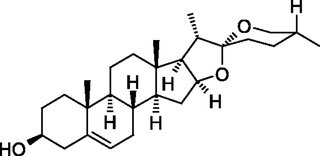
Active plant constituents
A brief look at Medline (Pubmed), a large computer database containing scientific, medical, and clinical papers published in past years, shows over 50,000 citations for the search term “herbal” demonstrating the ongoing scientific interest in plant medicines. The mechanisms by which plant medicines achieve clinical effect are becoming increasingly clear. Scientific analysis reveals herbal medicines to contain a wide range of active constituents (e.g. polyphenols, saponins, alkaloids, tannins, essential oils, fatty acids, vitamins and trace elements) and it is through the agency of these naturally occurring compounds that herbal medicine takes effect.
A brief look at Medline (Pubmed), a large computer database containing scientific, medical, and clinical papers published in past years, shows over 50,000 citations for the search term “herbal” demonstrating the ongoing scientific interest in plant medicines. The mechanisms by which plant medicines achieve clinical effect are becoming increasingly clear. Scientific analysis reveals herbal medicines to contain a wide range of active constituents (e.g. polyphenols, saponins, alkaloids, tannins, essential oils, fatty acids, vitamins and trace elements) and it is through the agency of these naturally occurring compounds that herbal medicine takes effect.

Over-the-counter herbal sales
Most research on herbal medicine is focused on individual herbal medicines as this type of research supports the use of individual herbal products that are for sale over-the-counter. Single or simple combination herbal medicines sold in UK should be registered under the Traditional Herbal Medicinal Products Directive and are marketed with a THR (traditional herbal registration) kite mark and are produced to high quality standards. These herbal products are designed for over-the-counter (OTC) sale, direct to the consumer without professional intervention. For this reason, these products are advertised for mild and self-limiting conditions. For more complex conditions it is sensible to seek the advice and treatment from a professional herbalist who is able to prescribe many more herbs usually in the form of a individualised formula.
Most research on herbal medicine is focused on individual herbal medicines as this type of research supports the use of individual herbal products that are for sale over-the-counter. Single or simple combination herbal medicines sold in UK should be registered under the Traditional Herbal Medicinal Products Directive and are marketed with a THR (traditional herbal registration) kite mark and are produced to high quality standards. These herbal products are designed for over-the-counter (OTC) sale, direct to the consumer without professional intervention. For this reason, these products are advertised for mild and self-limiting conditions. For more complex conditions it is sensible to seek the advice and treatment from a professional herbalist who is able to prescribe many more herbs usually in the form of a individualised formula.
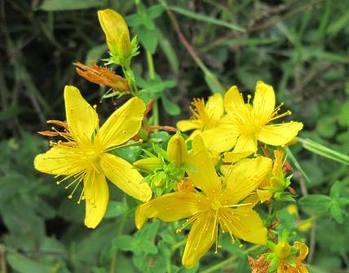
Herbal medicine research
Research can dramatically demonstrate the potential of herbal medicines. For example, a recent (2017) meta-analysis (gathering together the overall results) of studies carried out on St John’s wort for depression reviewed 27 clinical trials with a total of 3808 patients, comparing the use of St John's wort and Prozac type antidepressants (SSRIs). The researchers found that St John’s wort has comparable efficacy and safety to SSRIs.[8] The Latin name of this remedy, Hypericum is derived from the Greek hyper (above) and eikon (apparition) i.e. having power over the spirits and refers to the ancient use of this herb to cast out bad spirits in those suffering from melancholy.[9]
Rosemary has been associated with memory enhancement since ancient times, a belief referred to by Shakespeare in Hamlet where Ophelia says, “There’s rosemary, that’s for remembrance.”(Hamlet, iv. 5.) It has also long been used as a symbol for remembrance during weddings, war commemorations and funerals. A 2003 study demonstrated that rosemary oil and lavender oil could radically affect the memory of subjects who breathed in these aromas. While rosemary oil produced a significant enhancement of memory in the study’s participants, lavender exerted precisely the opposite effect.[10] This is no surprise to herbalists who associate lavender oil with sleep and sedation– not the best frame of mind to sharpen the memory! This 2003 study on the effect of these aromatic oils and memory was repeated in 2015 by doctors in the popular TV programme “Trust me I’m a doctor” with the same outcomes. Tested one by one, volunteers - all healthy older adults - entered a room that was infused either with rosemary essential oil, lavender essential oil, or no aroma at all. The volunteers in the room with the rosemary infusion did significantly better than those in the control room but lavender caused a significant decrease in performance.[11]
Research can dramatically demonstrate the potential of herbal medicines. For example, a recent (2017) meta-analysis (gathering together the overall results) of studies carried out on St John’s wort for depression reviewed 27 clinical trials with a total of 3808 patients, comparing the use of St John's wort and Prozac type antidepressants (SSRIs). The researchers found that St John’s wort has comparable efficacy and safety to SSRIs.[8] The Latin name of this remedy, Hypericum is derived from the Greek hyper (above) and eikon (apparition) i.e. having power over the spirits and refers to the ancient use of this herb to cast out bad spirits in those suffering from melancholy.[9]
Rosemary has been associated with memory enhancement since ancient times, a belief referred to by Shakespeare in Hamlet where Ophelia says, “There’s rosemary, that’s for remembrance.”(Hamlet, iv. 5.) It has also long been used as a symbol for remembrance during weddings, war commemorations and funerals. A 2003 study demonstrated that rosemary oil and lavender oil could radically affect the memory of subjects who breathed in these aromas. While rosemary oil produced a significant enhancement of memory in the study’s participants, lavender exerted precisely the opposite effect.[10] This is no surprise to herbalists who associate lavender oil with sleep and sedation– not the best frame of mind to sharpen the memory! This 2003 study on the effect of these aromatic oils and memory was repeated in 2015 by doctors in the popular TV programme “Trust me I’m a doctor” with the same outcomes. Tested one by one, volunteers - all healthy older adults - entered a room that was infused either with rosemary essential oil, lavender essential oil, or no aroma at all. The volunteers in the room with the rosemary infusion did significantly better than those in the control room but lavender caused a significant decrease in performance.[11]
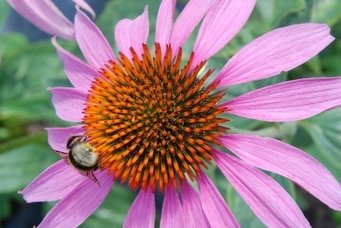
Problems with published research
There have been significant problems in researching herbal medicine because all too often researchers who are not herbalists and fail to identify properly the plant being tested or use the right dosage. This probably explains how researchers come to very different conclusions when evaluating the same remedy. For example, a 2014 meta-analysis of the use of the herb echinacea for the common cold found only “a weak benefit from some echinacea products”[12] while another more recent meta-analysis of the same remedy demonstrated a remarkably positive response “Evidence indicates that echinacea potently lowers the risk of recurrent respiratory infections and complications thereof.”[13]
There have been significant problems in researching herbal medicine because all too often researchers who are not herbalists and fail to identify properly the plant being tested or use the right dosage. This probably explains how researchers come to very different conclusions when evaluating the same remedy. For example, a 2014 meta-analysis of the use of the herb echinacea for the common cold found only “a weak benefit from some echinacea products”[12] while another more recent meta-analysis of the same remedy demonstrated a remarkably positive response “Evidence indicates that echinacea potently lowers the risk of recurrent respiratory infections and complications thereof.”[13]

Researching individualised herbal treatment
When it comes to individualised treatments provided by herbalists for their patients, there is less available published research than for individual herbal remedies. Herbal medicine has not got the financial backing of the powerful pharmaceutical sector nor, for that matter, is it supported by the medical establishment and there is no incentive on the part of the powers that be to fund research that demonstrates the health benefits of consulting a qualified herbalist. To complicate matters, a more individualised approach has lately also been acknowledged in mainstream medicine known as ‘personalised medicine’. This however more narrowly refers to matching medication to molecular biologic specifications in individuals rather than to a providing for individual patient needs as is understood in person-centred medicine practised by herbalists.
When it comes to individualised treatments provided by herbalists for their patients, there is less available published research than for individual herbal remedies. Herbal medicine has not got the financial backing of the powerful pharmaceutical sector nor, for that matter, is it supported by the medical establishment and there is no incentive on the part of the powers that be to fund research that demonstrates the health benefits of consulting a qualified herbalist. To complicate matters, a more individualised approach has lately also been acknowledged in mainstream medicine known as ‘personalised medicine’. This however more narrowly refers to matching medication to molecular biologic specifications in individuals rather than to a providing for individual patient needs as is understood in person-centred medicine practised by herbalists.
Gathering evidence
The European Herbal and Traditional Medicine Practitioners Association (EHTPA) has been gathering evidence for herbal medicine in scoping studies that are published on its website - see www.ehtpa.eu/. This important work is ongoing. At this time when there is a very real threat of widespread antimicrobial resistance so that antibiotics lose their ability to combat infection, herbal medicines once again are likely to be a vital resource providing practical response to this worrying development (see research box at www.ehtpa.eu/ for the paper from the EHTPA to the House of Commons’ Science and Technology Committee’s inquiry into antimicrobial resistance). Interestingly, despite the variability of the quality of herbal research, a review comparing the quality and results of trials of Western phytotherapy (herbal medicine) and conventional medicine challenges the widely held belief that the quality of the evidence on the effectiveness of herbal medicine is generally inferior to the evidence available for conventional medicine.[14]
The European Herbal and Traditional Medicine Practitioners Association (EHTPA) has been gathering evidence for herbal medicine in scoping studies that are published on its website - see www.ehtpa.eu/. This important work is ongoing. At this time when there is a very real threat of widespread antimicrobial resistance so that antibiotics lose their ability to combat infection, herbal medicines once again are likely to be a vital resource providing practical response to this worrying development (see research box at www.ehtpa.eu/ for the paper from the EHTPA to the House of Commons’ Science and Technology Committee’s inquiry into antimicrobial resistance). Interestingly, despite the variability of the quality of herbal research, a review comparing the quality and results of trials of Western phytotherapy (herbal medicine) and conventional medicine challenges the widely held belief that the quality of the evidence on the effectiveness of herbal medicine is generally inferior to the evidence available for conventional medicine.[14]
[1] Nissen N et al (2012). Citizens’ needs and attitudes towards CAM. Final Report of CAMbrella Work Package 3. P. 70.
[2] Kim HG, Cho JH, Yoo SR, Lee JS, Han JM, Lee NH, Ahn YC, Son CG. Antifatigue effects of Panax ginseng C.A. Meyer: a randomised, double-blind, placebo-controlled trial. PLoS One. 2013 Apr 17;8(4):e61271.
[2] Denzler K, Moore J, Harrington H, Morrill K, Huynh T, Jacobs B, Waters R, Langland J. Characterization of the Physiological Response following In Vivo Administration of Astragalus membranaceus. Evid Based Complement Alternat Med.2016, 2016:6861078.
[4] Kim SH, Oh DS, Oh JY, Son TG, Yuk DY, Jung YS. Silymarin Prevents Restraint Stress-Induced Acute Liver Injury by Ameliorating Oxidative Stress and Reducing Inflammatory Response. Molecules. 2016 Apr 1;21(4):443.
[5] Davaatseren M, Hur HJ, Yang HJ, Hwang JT, Park JH, Kim HJ, Kim MJ, Kwon DY, Sung MJ. Taraxacum official (dandelion) leaf extract alleviates high-fat diet-induced nonalcoholic fatty liver. Food Chem Toxicol. 2013 Aug;58:30-6.
[6] Veeresham C. Natural products derived from plants as a source of drugs. J Adv Pharm Technol Res. 2012 Oct;3(4):200-1.
[7] Fabricant D S, Farnsworth N R. The value of plants used in traditional medicine for drug discovery.Environ Health Perspect. 2001 Mar; 109(Suppl 1): 69–75.
[8] Ng QX, Venkatanarayanan N, Ho CY. Clinical use of Hypericum perforatum (St John's wort) in depression: A meta-analysis. J Affect Disord. 2017 Jan 3;210:211-221.
[9] Schauenberg P and Paris F. Guide to Medicinal Plants originally published in French by Delachaux and Niestle SA Paris 1974 and republished in English, Lutterworth Press, 19 77.
[10] Moss M, Cook J, Wesnes K, Duckett P. Aromas of rosemary and lavender essential oils differentially affect cognition and mood in healthy adults. Int J Neurosci. 2003 Jan;113(1):15-38.
[11] http://www.bbc.co.uk/programmes/articles/46gYK1cHQt2zZ0dKhq87k8h/could-aromatherapy-actually-affect-my-memory
[12] Karsch-Völk M, Barrett B, Kiefer D, Bauer R, Ardjomand-Woelkart K, Linde K. Echinacea for preventing and treating the common cold. Cochrane Database Syst Rev. 2014 Feb 20;(2).
[13] Schapowal A, Klein P, Johnston SL. Echinacea reduces the risk of recurrent respiratory tract infections and complications: a meta-analysis of randomized controlled trials. Adv Ther. 2015 Mar;32(3):187-200
[14] Nartey L, Huwiler-Müntener K, Shang A, Liewald K, Jüni P, Egger M. Matched-pair study showed higher quality of placebo-controlled trials in Western phytotherapy than conventional medicine. J Clin Epidemiol. 2007 Aug;60(8):787-94.
[2] Kim HG, Cho JH, Yoo SR, Lee JS, Han JM, Lee NH, Ahn YC, Son CG. Antifatigue effects of Panax ginseng C.A. Meyer: a randomised, double-blind, placebo-controlled trial. PLoS One. 2013 Apr 17;8(4):e61271.
[2] Denzler K, Moore J, Harrington H, Morrill K, Huynh T, Jacobs B, Waters R, Langland J. Characterization of the Physiological Response following In Vivo Administration of Astragalus membranaceus. Evid Based Complement Alternat Med.2016, 2016:6861078.
[4] Kim SH, Oh DS, Oh JY, Son TG, Yuk DY, Jung YS. Silymarin Prevents Restraint Stress-Induced Acute Liver Injury by Ameliorating Oxidative Stress and Reducing Inflammatory Response. Molecules. 2016 Apr 1;21(4):443.
[5] Davaatseren M, Hur HJ, Yang HJ, Hwang JT, Park JH, Kim HJ, Kim MJ, Kwon DY, Sung MJ. Taraxacum official (dandelion) leaf extract alleviates high-fat diet-induced nonalcoholic fatty liver. Food Chem Toxicol. 2013 Aug;58:30-6.
[6] Veeresham C. Natural products derived from plants as a source of drugs. J Adv Pharm Technol Res. 2012 Oct;3(4):200-1.
[7] Fabricant D S, Farnsworth N R. The value of plants used in traditional medicine for drug discovery.Environ Health Perspect. 2001 Mar; 109(Suppl 1): 69–75.
[8] Ng QX, Venkatanarayanan N, Ho CY. Clinical use of Hypericum perforatum (St John's wort) in depression: A meta-analysis. J Affect Disord. 2017 Jan 3;210:211-221.
[9] Schauenberg P and Paris F. Guide to Medicinal Plants originally published in French by Delachaux and Niestle SA Paris 1974 and republished in English, Lutterworth Press, 19 77.
[10] Moss M, Cook J, Wesnes K, Duckett P. Aromas of rosemary and lavender essential oils differentially affect cognition and mood in healthy adults. Int J Neurosci. 2003 Jan;113(1):15-38.
[11] http://www.bbc.co.uk/programmes/articles/46gYK1cHQt2zZ0dKhq87k8h/could-aromatherapy-actually-affect-my-memory
[12] Karsch-Völk M, Barrett B, Kiefer D, Bauer R, Ardjomand-Woelkart K, Linde K. Echinacea for preventing and treating the common cold. Cochrane Database Syst Rev. 2014 Feb 20;(2).
[13] Schapowal A, Klein P, Johnston SL. Echinacea reduces the risk of recurrent respiratory tract infections and complications: a meta-analysis of randomized controlled trials. Adv Ther. 2015 Mar;32(3):187-200
[14] Nartey L, Huwiler-Müntener K, Shang A, Liewald K, Jüni P, Egger M. Matched-pair study showed higher quality of placebo-controlled trials in Western phytotherapy than conventional medicine. J Clin Epidemiol. 2007 Aug;60(8):787-94.